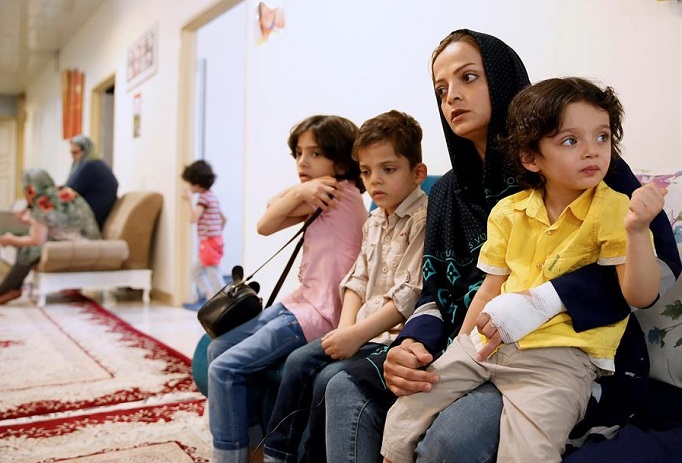Trauma, addiction: damage dealt by Iran’s child marriages
Published : 13 Nov 2020, 22:26
Sahar Bandani is approaching 30 and is already a grandmother. She was forced to marry as a child.
Her case is nothing exceptional in Iran, where every year tens of thousands of child marriages take place despite the physical and mental damage it inflicts.
“I got married when I was eight-and-a-half and when I was 10 I had my first daughter. Later, I went through a series of problems in my life and I took tranquilizers,” she tells Efe, surrounded by three of her children.
Bandani is originally from Zahedan, the provincial capital of the southeastern Sistan and Baluchistan region, the poorest in Iran and one of the most conservative.
She says that the level of education in the region is “low,” and blames this for her marriage at such a young age, and that of her first daughter, which pitted Bandani against her father.
LOOKING AFTER A BABY AS A CHILD
Bandani was just 10 when she held her daughter in her arms.
“I didn’t know how to look after a baby,” she says. “My parents took my baby to their house and looked after her there. My daughter knows I’m her mother, but she is used to her grandparents and she stayed with them until she was married at 13.”
After learning that her daughter had suffered the same fate as her, she cut off relations with her family.
In the last 17 years, she has not seen her daughter or her parents and has never got to know her grandson.
In her case, the child marriages were not due to economic problems but rather an entrenched traditional culture and a rigorous interpretation of Islamic Sharia law.
The economic factor carries weight on many occasions, however, fostered by government loans granted to newlyweds, something recognized recently by the Iranian Vice President for Women and Family Affairs, Masumeh Ebtekar.
"Marriage loans can inadvertently increase the buying and selling of girls under the pretext of nuptials and that worries us," said Ebtekar, who estimated annual marriages of children under 14 at about 30,000.
A CONTROVERSIAL AGE
Iranian law sets the minimum age for marriage at 13 for girls and 15 for boys. However, that can be reduced with special permission.
This exception to the law opens the door for children of all ages to be married off and, despite pressure from reformist women’s groups and child rights groups, it has remained unchanged for decades.
The current legislation is an advance on the one approved following the Islamic Revolution of 1979 when authorities set the minimum age at nine for girls but it remains far removed from the law established under the former monarchy, which set it at 18.
Mariam Rostami, from Kermanshah, near the border with Iraq, an area with a large Kurdish population, was married off at 13.
“My parents divorced and my stepmother decided to marry me off when I was 13. I didn’t know what marriage was and very soon after I had a daughter,” Rostami, who is 33, tells Efe.
Now with four children, she is trying to overcome a heroin and methamphetamine addiction.
TRAUMA AND ADDICTION
Both Rostami and Bandani resorted to tranquilizers and drugs, pressured by their husbands and GPs.
It became their way to escape the hell they were living in.
Rostami’s husband was a drug addict. He mistreated her and introduced her to smoking opium.
She eventually got a divorce but had no better luck with her next husband, who was addicted to methamphetamine.
“The second was worse than the first. Anything we had we spent on drugs, we eventually had nothing left and when I wanted to leave and go to my mother’s home he tried to stop me,” she says.
Bandani began to take tranquilizers after her first sexual experience, which left her “broken.”
She was taken to the hospital and the doctors prescribed her medication to settle her nerves.
Years later another doctor recommended she come off the pills and prescribed her a methadone syrup, to which she became addicted. Her husband used that same syrup to drug the children so that they would not bother Bandani while he was at work.
When she realized what was going on with her children, she filed for a divorce. She had to wean her children off their methadone dependency.
She delayed asking for help, fearing that the authorities would take custody of her children.
Now both women are in recovery.
Bandani provides for her family by cleaning houses, one of the few jobs on offer given her lack of education — another of the dire consequences of child marriage.


